Talitha Kum against people trafficking.
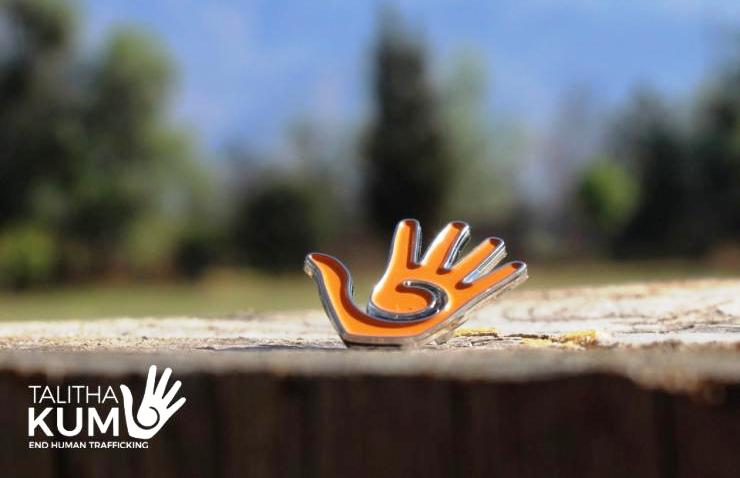
Fifteen years ago, Talitha Kum was established as an International Network of Consecrated Life against Trafficking in Persons by the International Union of Superiors General (UISG.) A long journey of commitment alongside many exploited people. We talk about it with Sister Abby Avelino, the international coordinator of the Network.
“We live in a world where human relationships are valued based on what people “have”, rather than what they “are”. This last dimension is often discarded and forgotten, leaving the field open to the first: to be, I must have, at any cost. We need a paradigm shift in society and in individual mentality,” Sr. Abby affirms.
Born in Tanauan, in the Philippines, Sister Abby Avelino, 58, of the Congregation of the Sisters of Maryknoll has been the international coordinator of Talitha Kum, the Rome-based international network against human trafficking and exploitation, since last year.Founded in 2009 by the International Union of Superiors General (UISG), the network celebrates this year the fifteenth anniversary of its foundation.
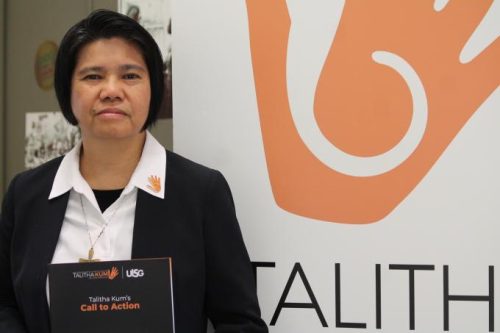
Sister Abby Avelino, the international coordinator of the Network. Talitha Kum operates on five continents, with 58 inter-congregational networks spread over 97 countries. (Photo:TK)
Sister Abby has a degree in Engineering and worked as a mechanical engineer as a young woman. Then, having become a missionary, for years she carried out her activity in Japan with migrant women, who suffer abuse and are exploited as domestic workers. “Coming African and Asian countries, many of them had been deceived by traffickers; that’s where I started thinking about getting involved in the anti-trafficking ministry. We founded Talitha Kum Japan in 2016, so I was appointed regional coordinator for Asia,” she says.
The next step was her appointment as international coordinator: “My commitment is to proclaim the loving presence of God through service in mission, with care, love and healing for all, regardless of culture, creed, race, nationality, gender or age”.
Talitha Kum operates on five continents, with 58 inter-congregational networks spread in 97 countries. Last year it reached more than half a million people. Talitha Kum’s mission is to end human trafficking and exploitation through collaborative initiatives focused on prevention, protection, social reintegration and the rehabilitation of survivors, partnership and advocacy, as well as promoting actions that
impact systemic causes.
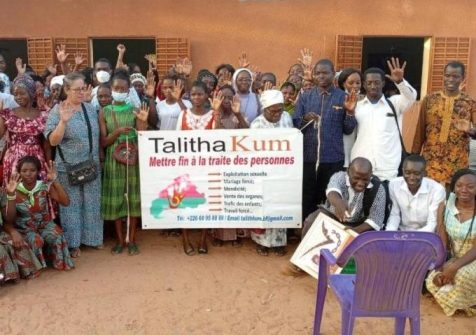
Talitha Kum group from Burkina Faso. The network aims to “Share our lives with those in situations of social vulnerability and the risk of trafficking”
“Our network, including religious, lay people and young people, exceeds 16,000 members. It is based on the rich tradition of Catholic women inspired by the life-giving ministry of Christ, who engage in community work,” says the missionary.
The network aims to “Share our lives with those in situations of social vulnerability and the risk of trafficking. We have accepted the invitation to stand with those who are discriminated against, exploited and victimized by modern slavery, breaking the silence, indifference and conformism that support human trafficking and every form of commodification of life. We value and promote collaboration and partnership with all organizations that are committed to eliminating human trafficking and its causes”, Sr. Abby tells us.
“In the face of so many situations of violence and exploitation, the Talitha Kum network not only wants to provide physical and emotional support but also spiritual support”, the religious Sister explains. “We promote access to justice, and we invite everyone to oppose what promotes and supports human trafficking, denouncing the arrogance and violence of economic-financial power, when it acts against the dignity of the person.”
In 2022, the profit generated by trafficking exceeded 150 billion euros. “Networking is key to building a world free from human trafficking. Each of us has a role to play and has gifts to manage with deep faith in God”, the Sister comments”.
For Sister Abby, it is important to give a political response to the phenomenon of trafficking. For this reason, the religious woman highlights three aspects in particular.
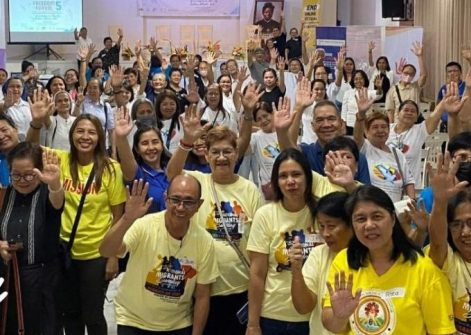
Talitha Kum group from The Philippines. “Networking is key to building a world free from human trafficking”.
The first is to create accessible and practicable legal migration channels. Especially for the many people trapped in conflict zones, there is often no choice but to turn to traffickers to escape hunger, despair and death.
The second is to create dignified working conditions that respect people. The demand for cheap, unprotected labour is increasing, not only in developing countries but also in modern, rights-based societies. Trafficked people are the ideal commodity to be included in a labour market increasingly devoid of rules, where profit maximization brings matters to extremes, to the point of denying rights related to work.
The third is the worrying increase in the gap in treatment and opportunities for men and women.
The progressive privatization of education pushes girls increasingly to the margins, while those already included in the job market are still often forced to choose between family and career, to the detriment of their economic autonomy. Dependent women are vulnerable women who often choose to believe traffickers’ promises to escape a life of subjugation, humiliation and violence.
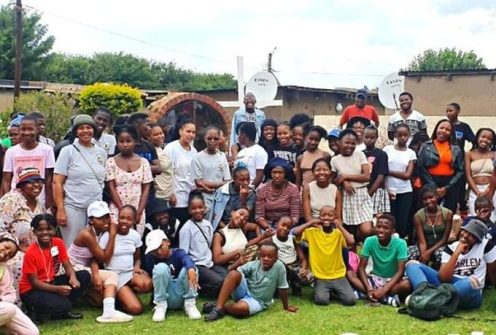
Talitha Kum group from South Africa. The network includes religious, lay people and young people.
Sr Abby says: “We at Talitha Kum are concerned about the rampant throwaway culture, where everything is disposable – goods, food, land and even the lives of those on the margins. Talitha Kum calls for a change in the dominant paradigm towards greater legal, social and economic justice for those on the margins and at risk of falling into the hands of traffickers and exploiters, for survivors who ask for recognition and help to repair their broken lives. The victims remind us of the need to define norms and policies to support the fulfilment of men and women as individuals and members of the community, but above all to promote a culture of dignity and an economy of care.”
Since its foundation, Talitha Kum has continued to promote courses for the formation of new territorial networks, networking and collaboration with various organizations committed against human trafficking. (C.C.)



